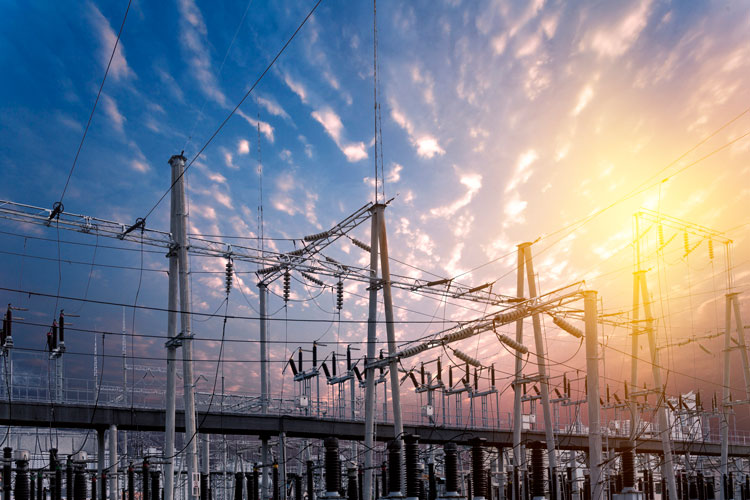You've seen it in the movies—a massive wall of monitors in a dark room displaying blinking charts and graphs while busy staffers press buttons and shift levers.
The new Smart Grid Lab, opening in 2023 in George Mason University's Van Metre Hall at Mason Square, will recreate a modest version of this control center. This state-of-the-art facility will offer hands-on experience to undergraduate and graduate students and professional practitioners. College of Engineering and Computing Associate Professor Liling Huang reports the lab will include three workstations with a Real-Time Digital Simulator (RTDS) and a Supervisory Control and Data Acquisition (SCADA) system, among other features. These stations can either be linked together to imitate the entire grid or used independently to examine particular subjects. Huang believes this lab will make Mason's power engineering program unique, as few universities offer this immersive educational experience.
"The new Smart Grid Lab is critical to training and modeling, simulation, and digital twin research. It will support a secure next-generation power grid," said Liza Wilson Durant, associate provost for strategic initiatives and community engagement at Mason.

The lab's primary purpose is to enable students and researchers to conduct various hands-on experiments, work with hardware-in-the-Loop (HIL) simulations, and analyze simulation data related to power and energy systems. These activities will encompass various aspects of power systems, smart grid technology, microgrid, renewable energy, electric machines, and energy management systems. Beyond that, Huang says that when using the SCADA system and display wall, students and faculty in the lab will collect consumption data and display energy flow at the Fairfax, Mason Square, and SciTech Campuses.
Many power engineering programs have shuttered over the last 20 years, causing an industry workforce shortage, making the lab even more valuable to Mason's students by rounding out their education. Further, the nation is struggling with an aging power grid infrastructure and an increasing electricity demand. Combine all of that with a global initiative of Net Zero by 2050, and Huang says Mason is an ideal place to pursue this type of research and education, particularly with the campus' location in the Washington metropolitan area, near the federal government and one of the largest data center markets in the world. The lab will also be used for security and resiliency testing, ensuring that our power systems are adequately equipped to manage and mitigate potential cyberthreats or disruptions.
"The Van Metre Lab is the precursor to a larger lab capability in Fuse, a net-zero ready facility which will serve as a living laboratory. This lab will enable real-time data collection to facilitate smart cities innovation and research to improve quality of life and moderate technology's impact on the environment," said Wilson Durant.
This powerful lab will help position Mason as a leader among Virginia universities in hands-on learning and research in power engineering.
